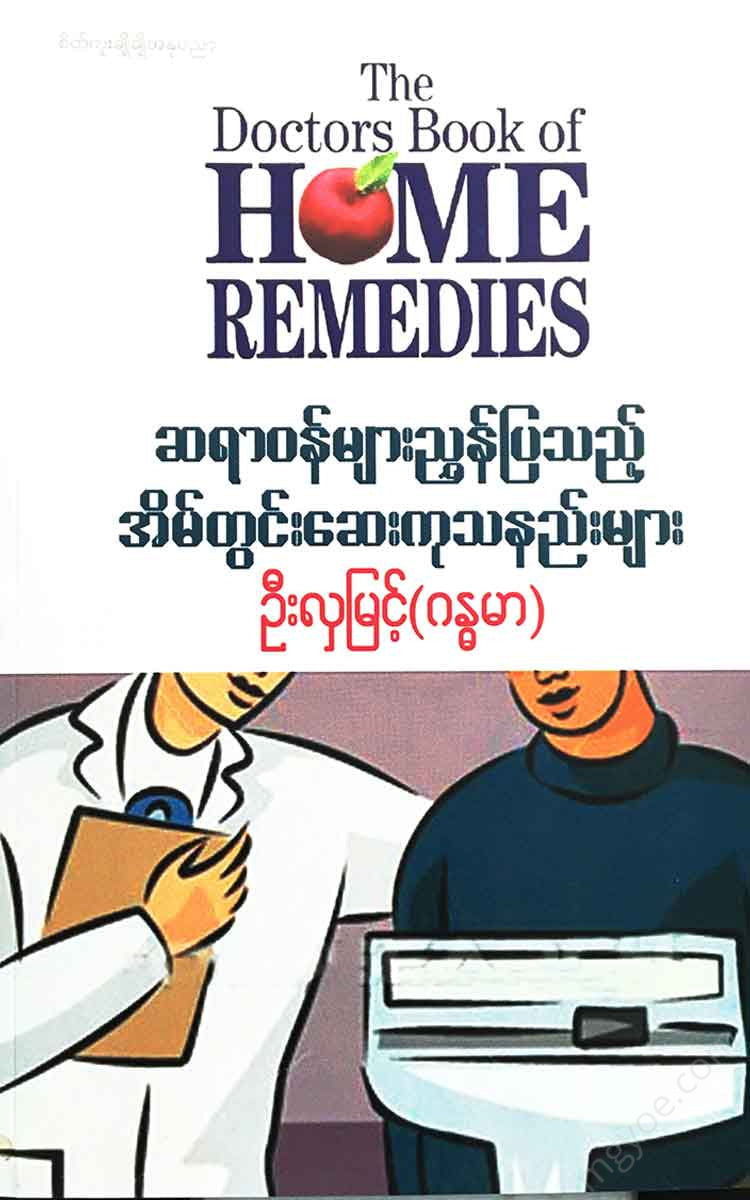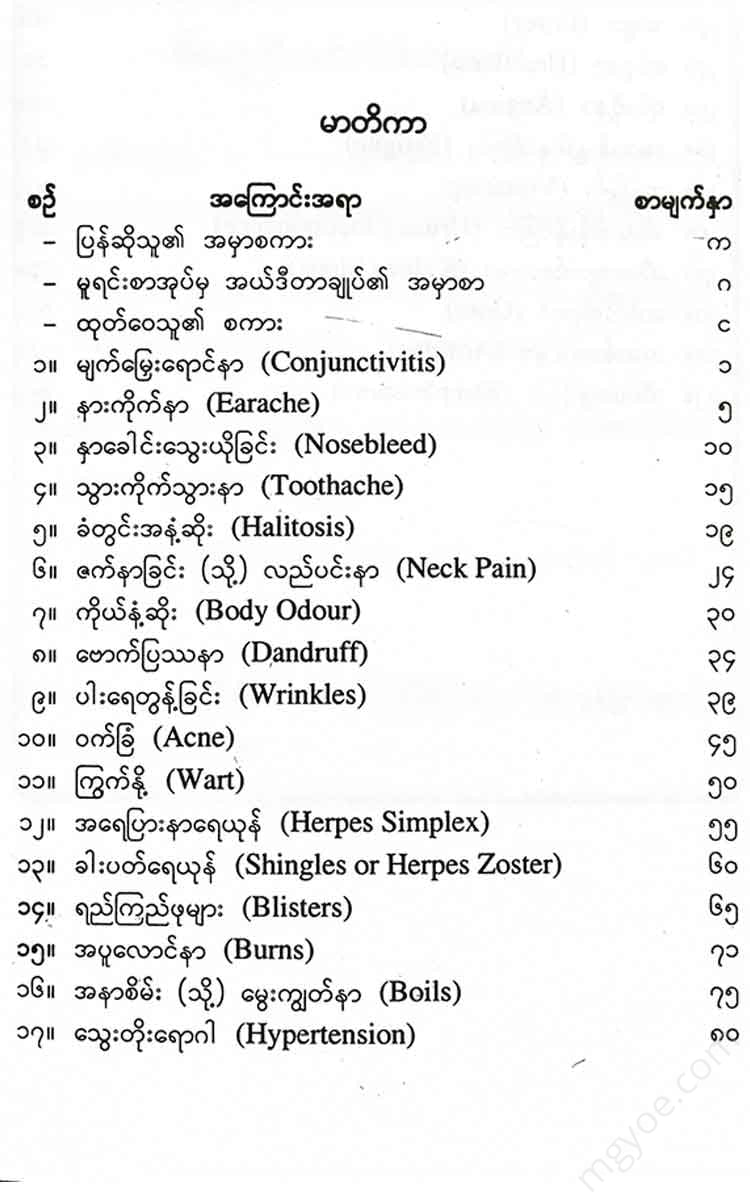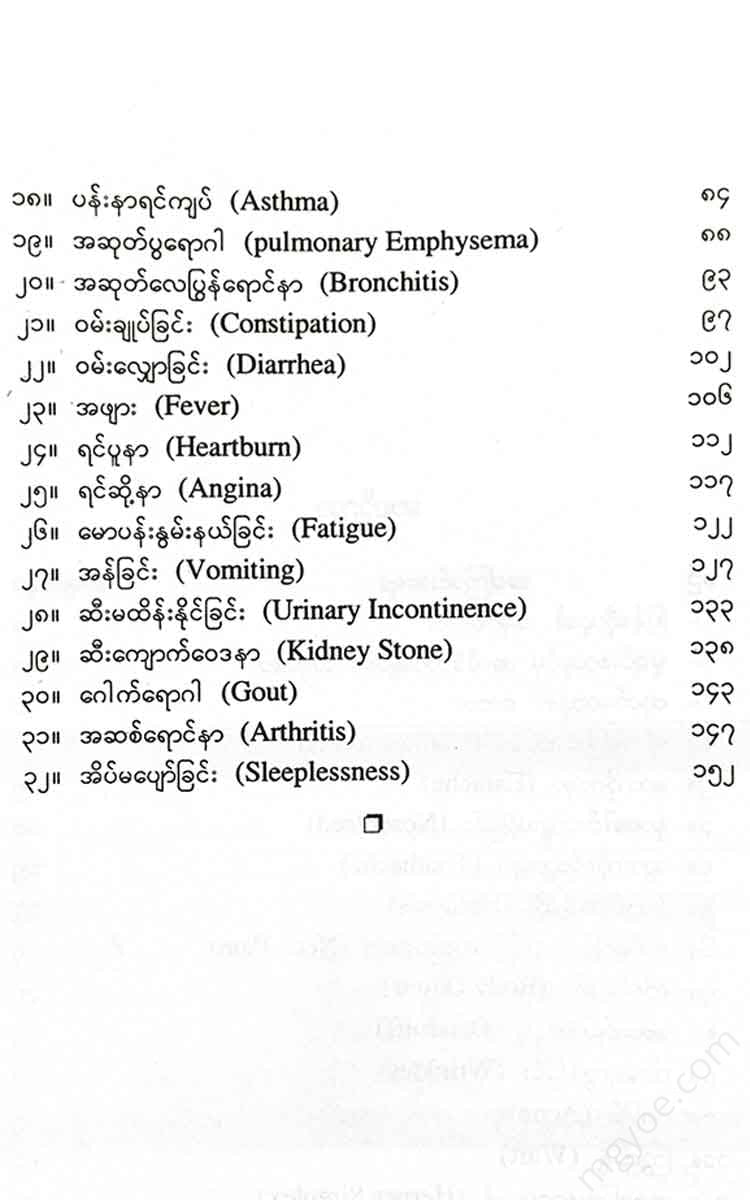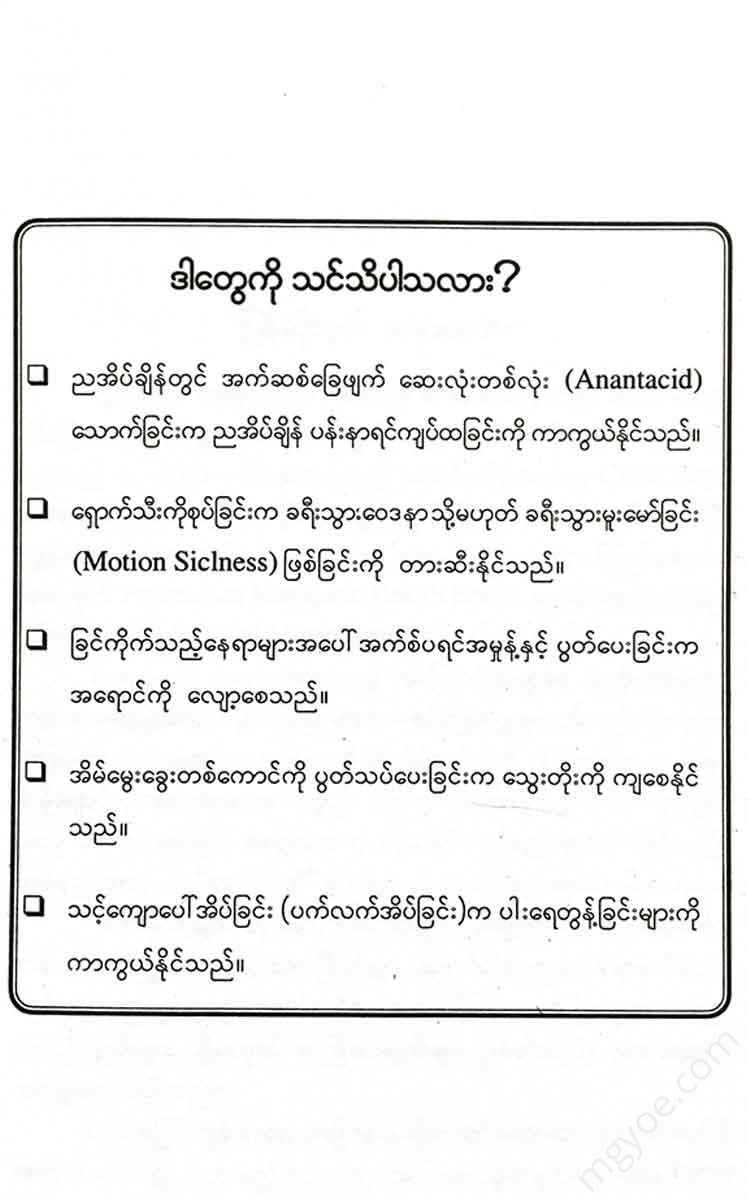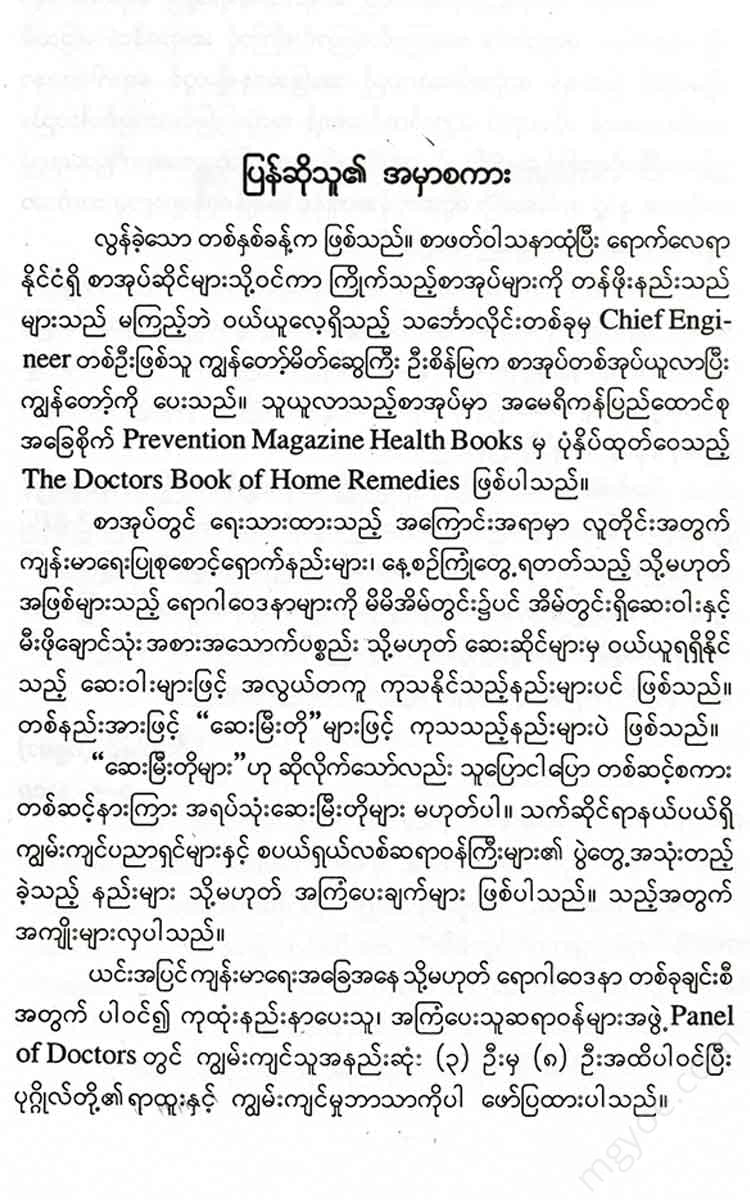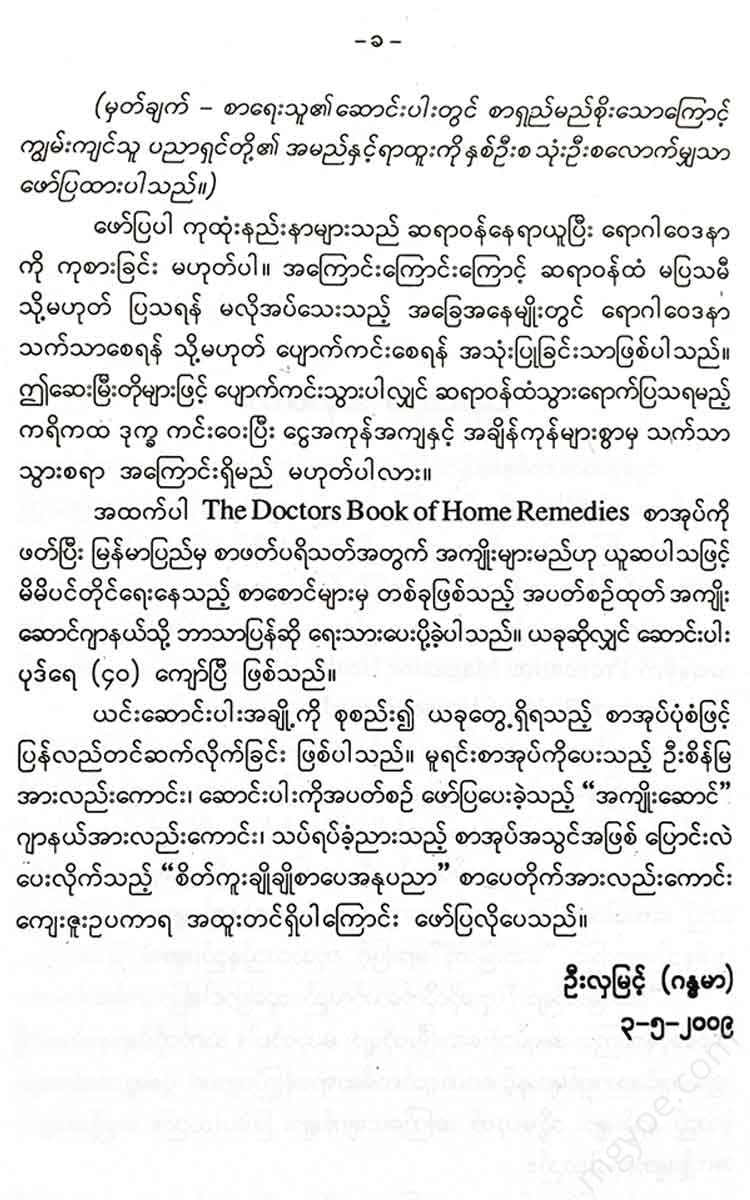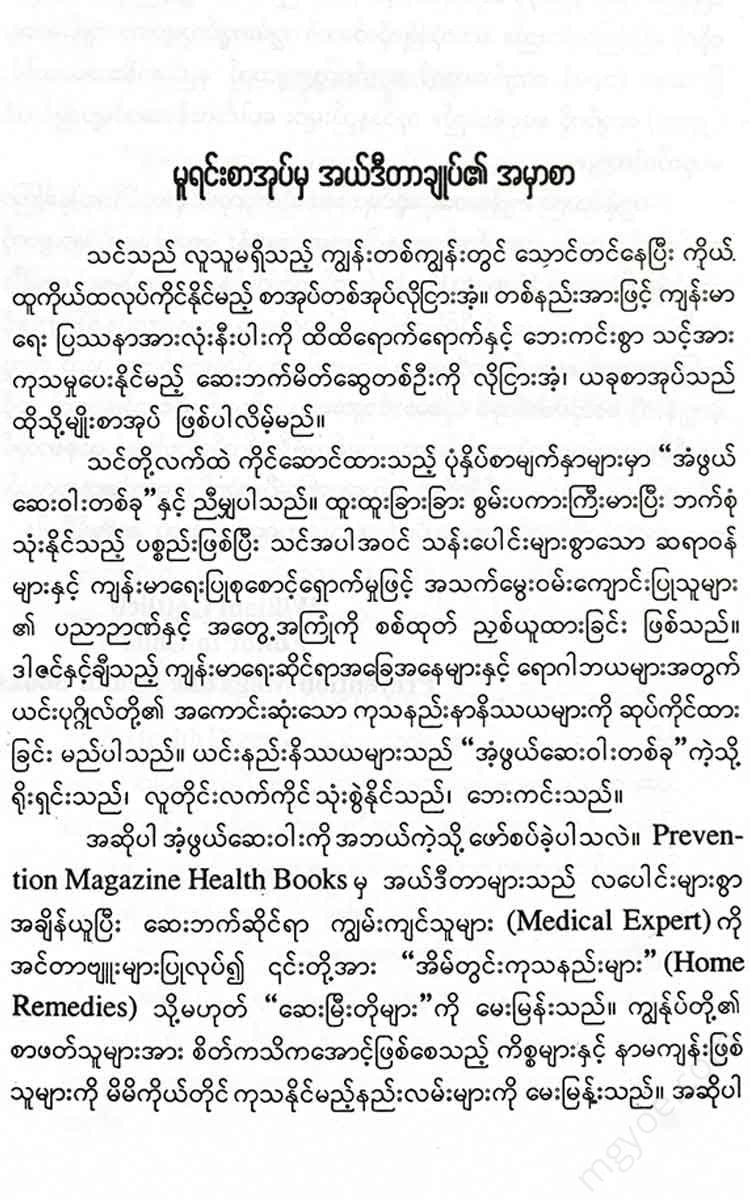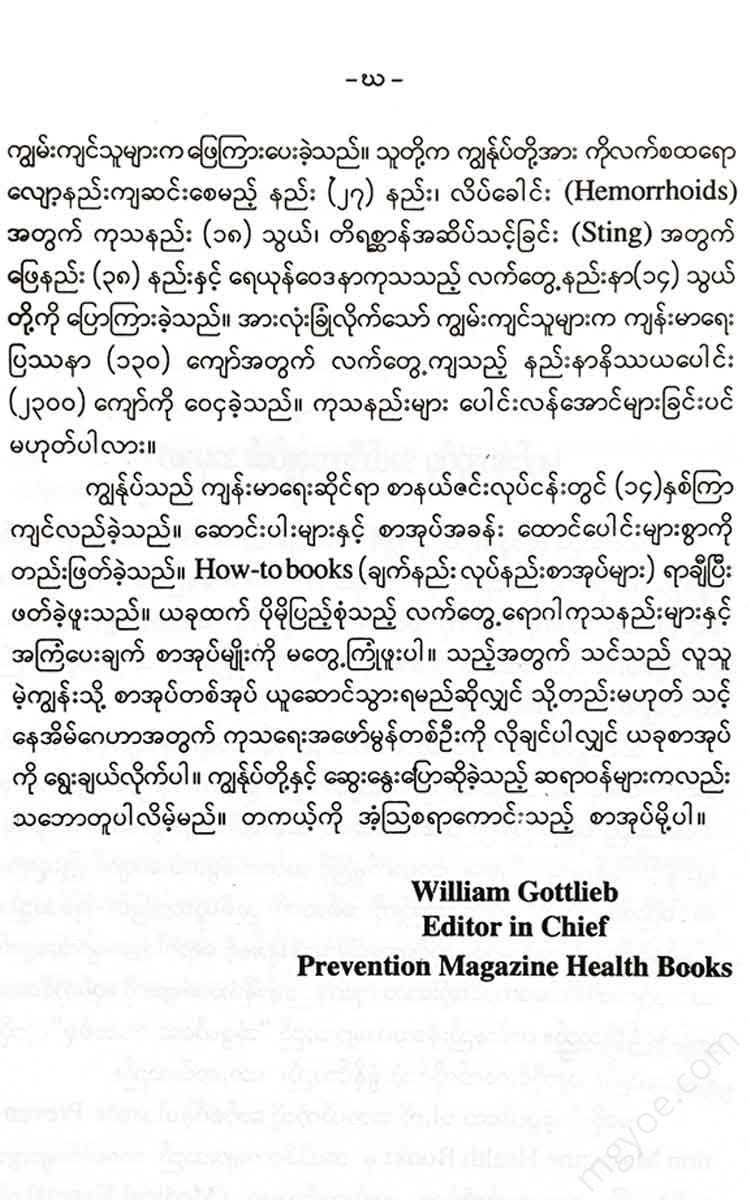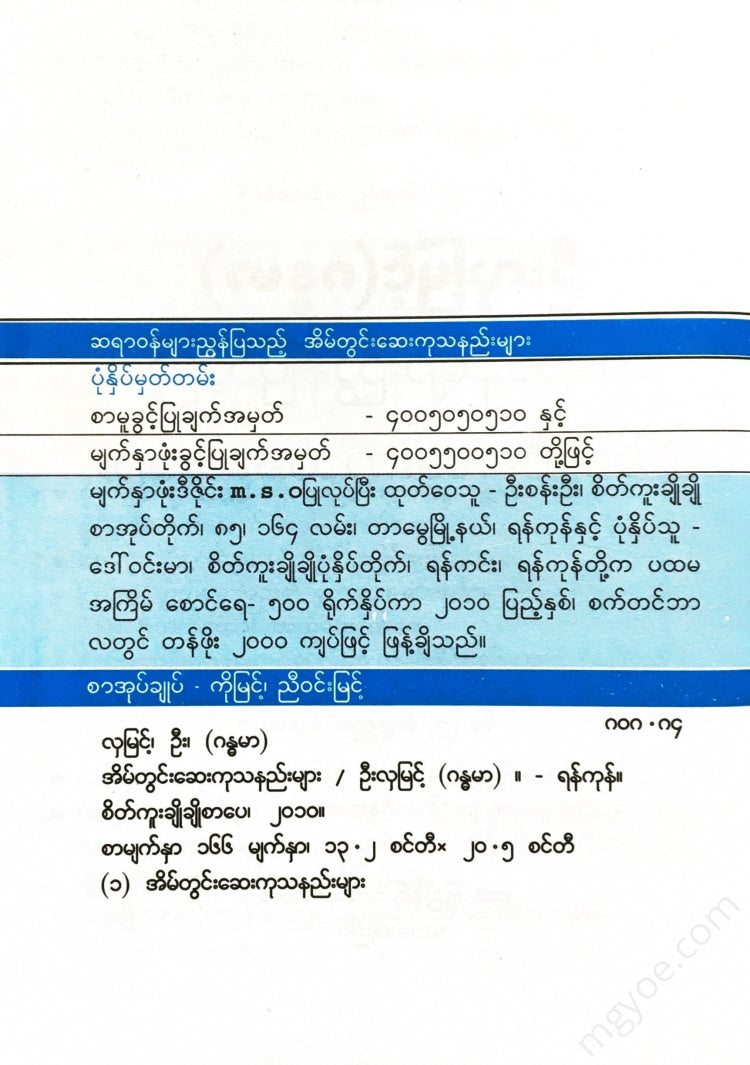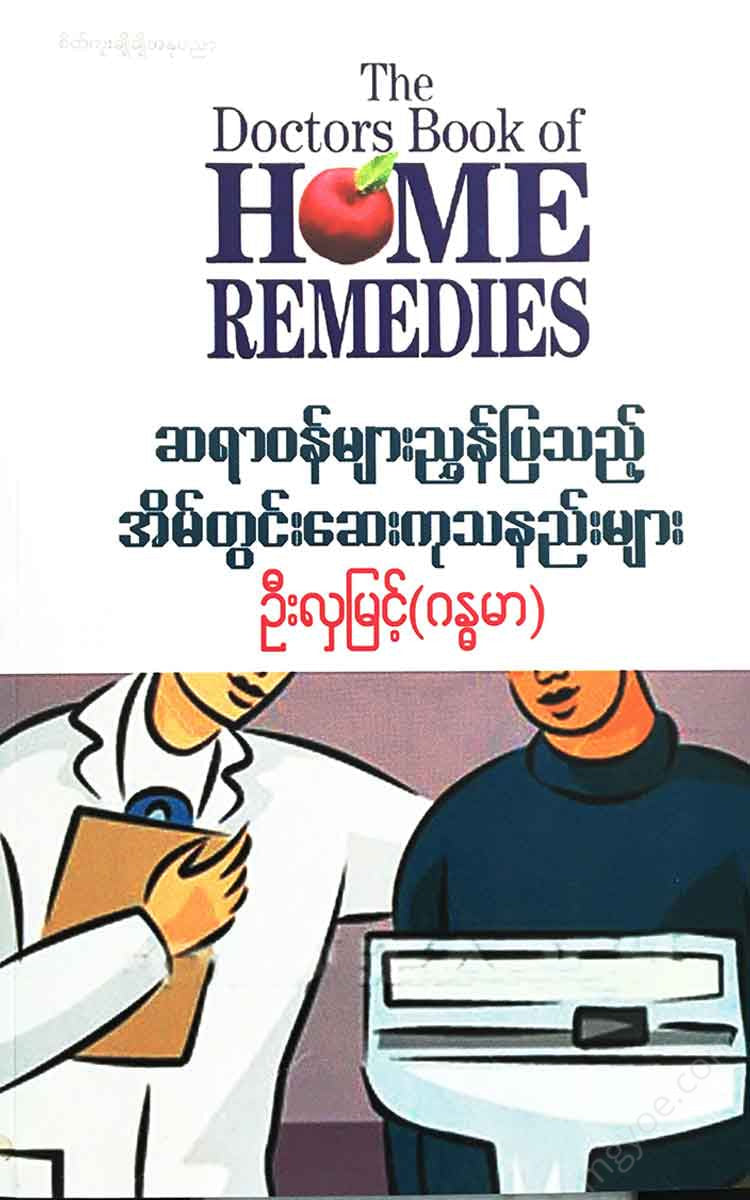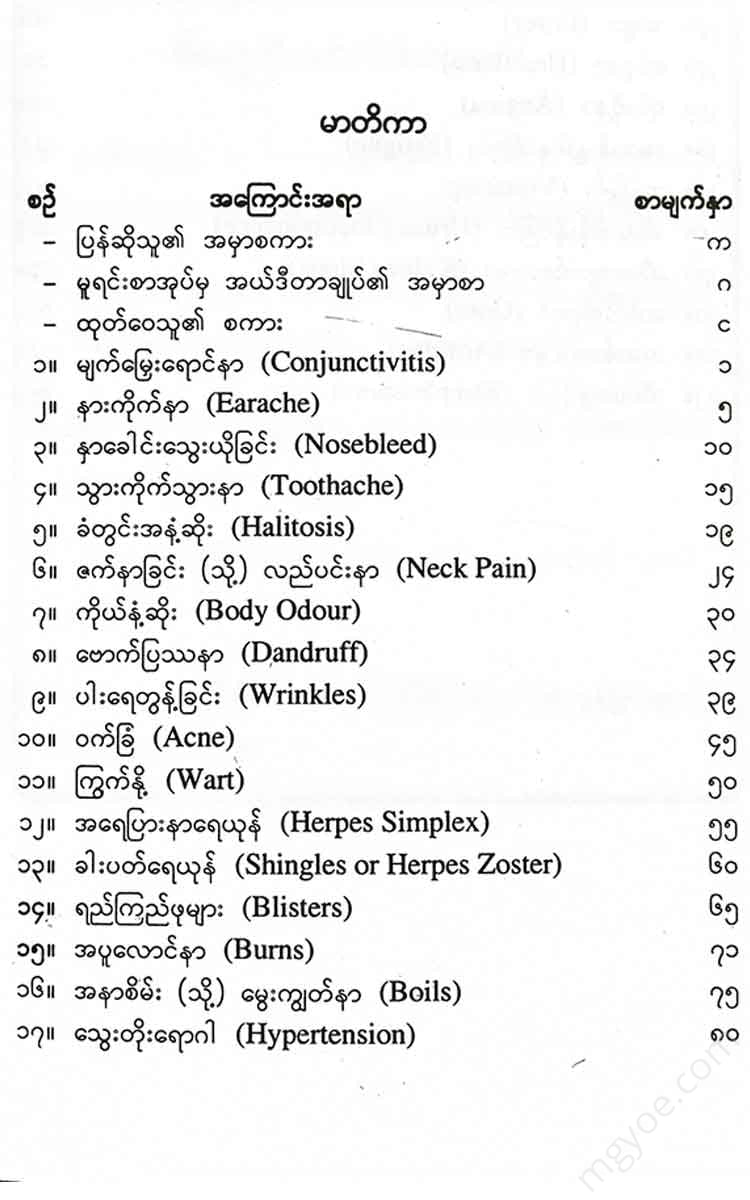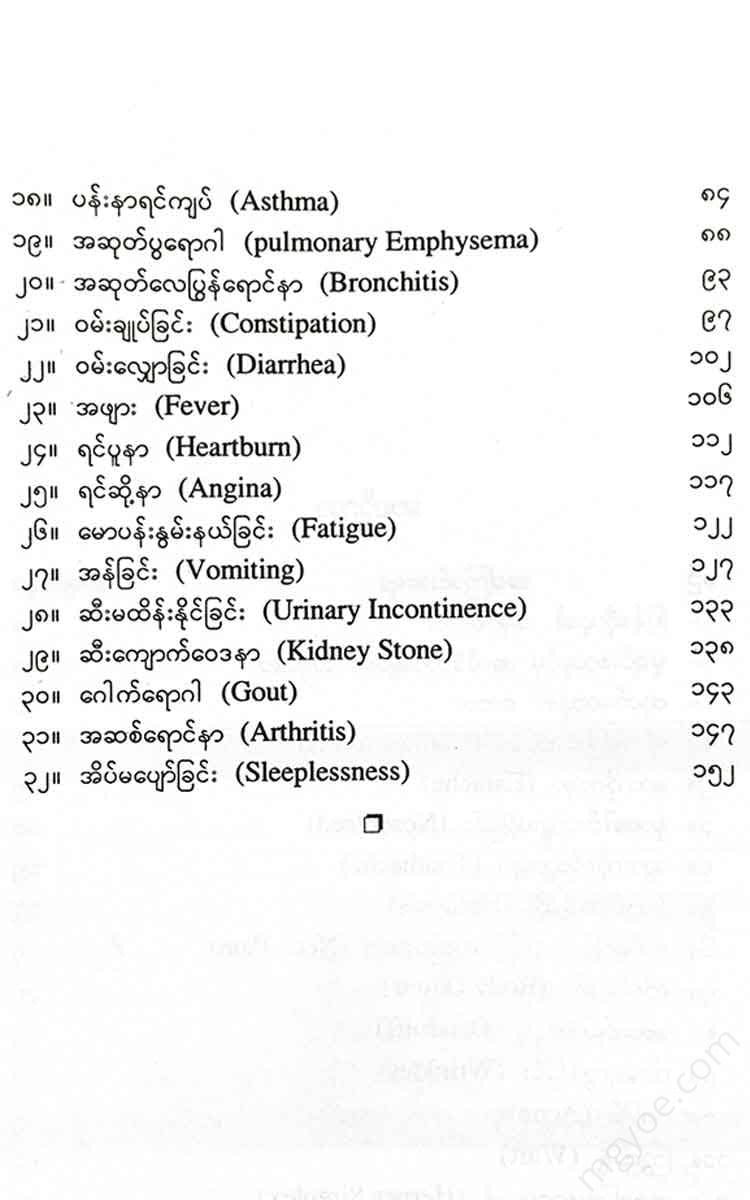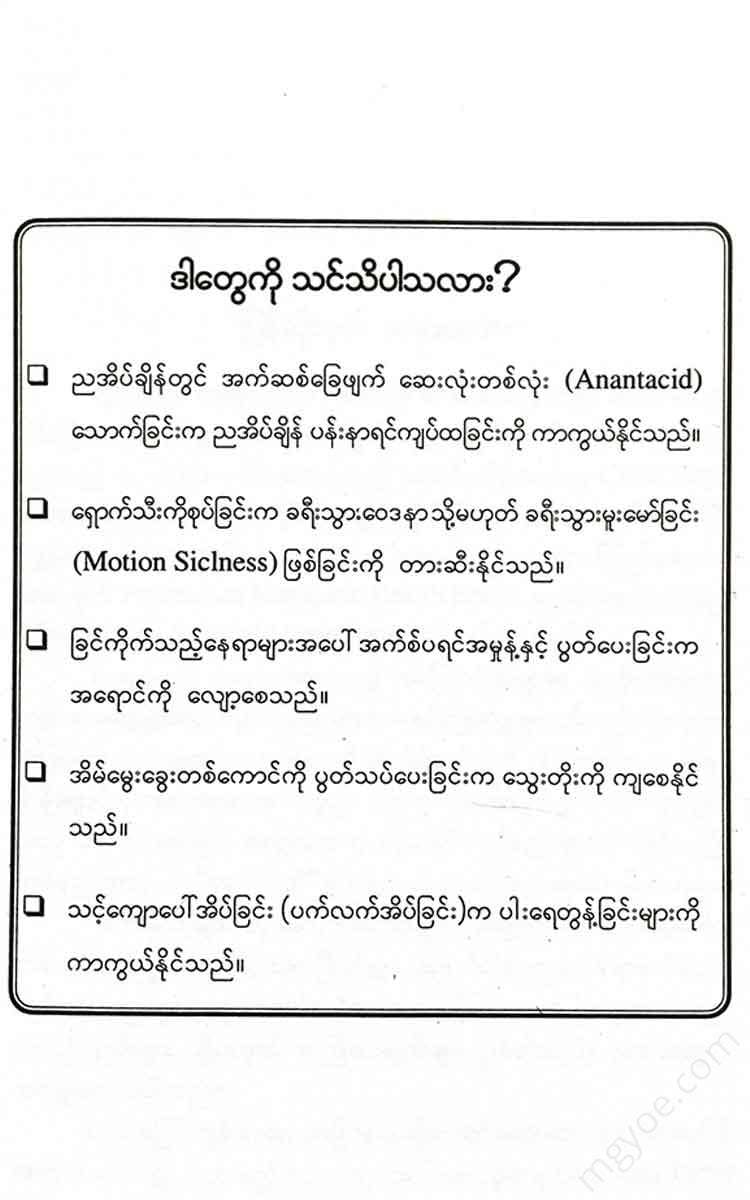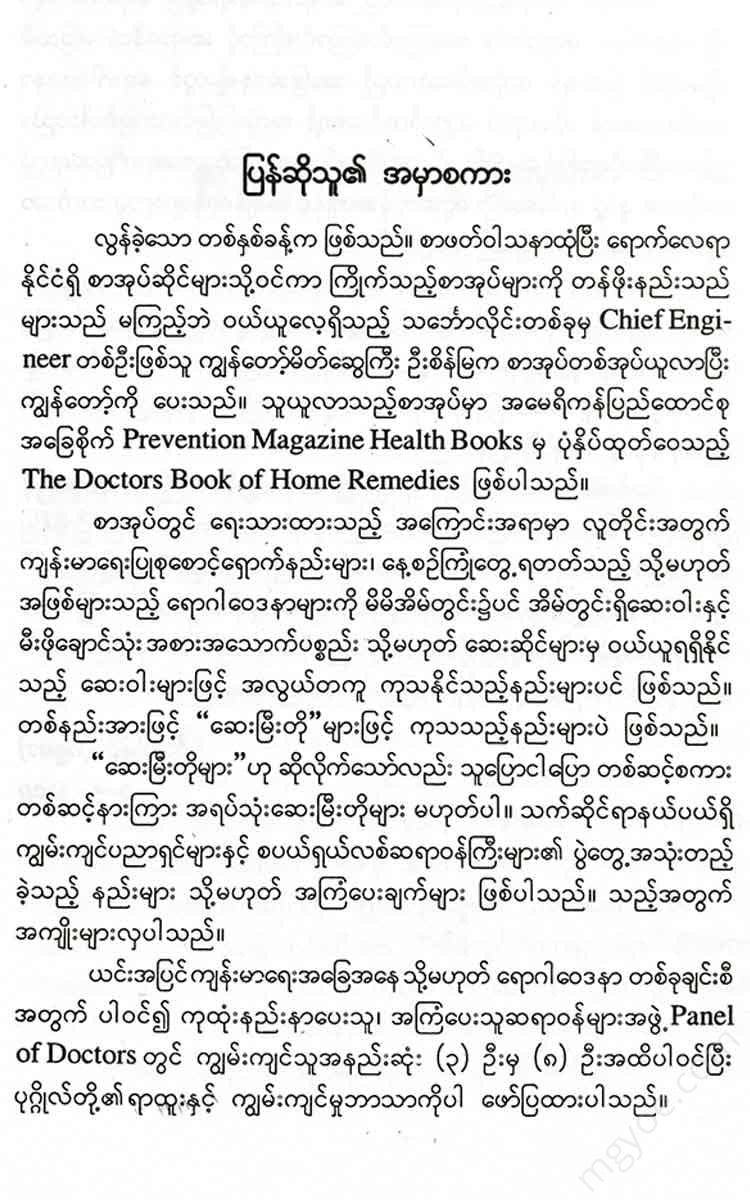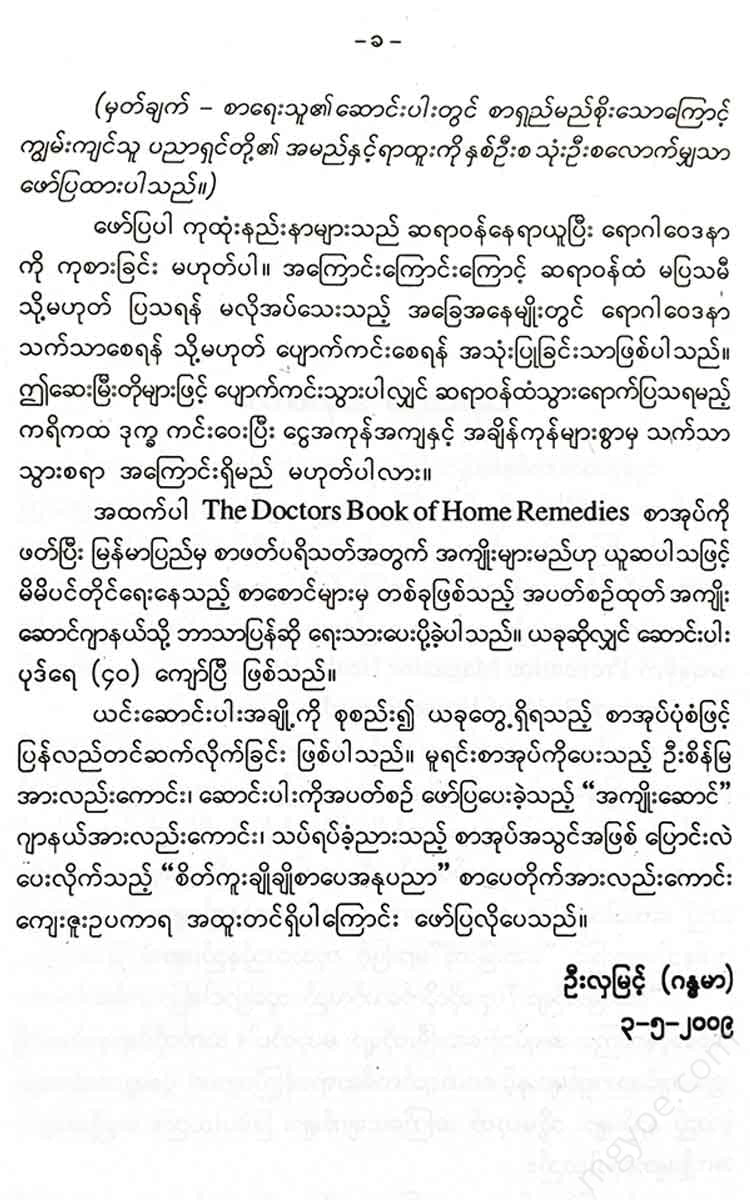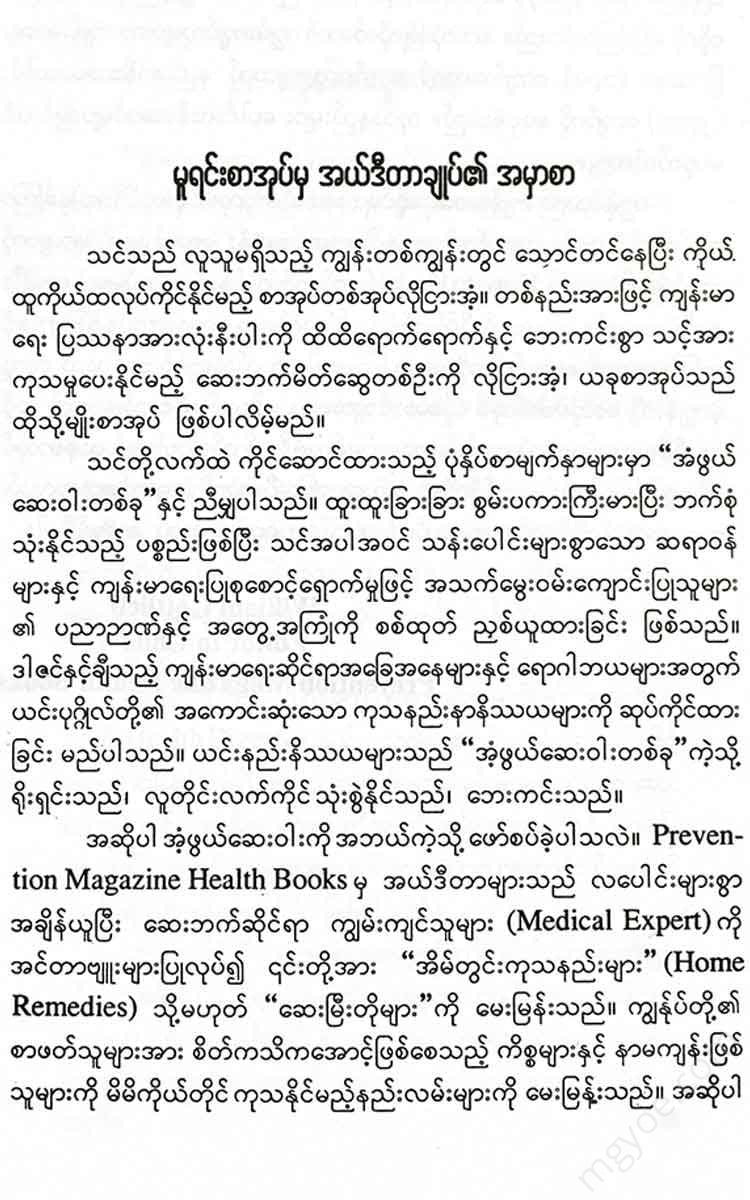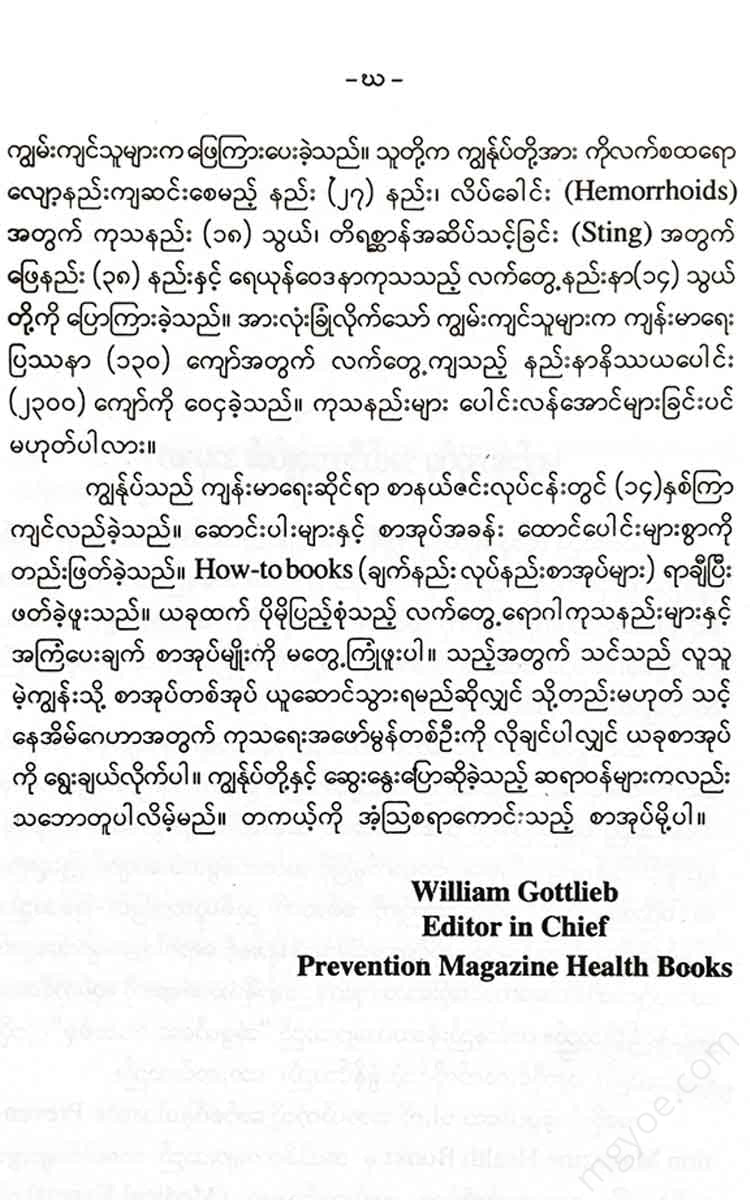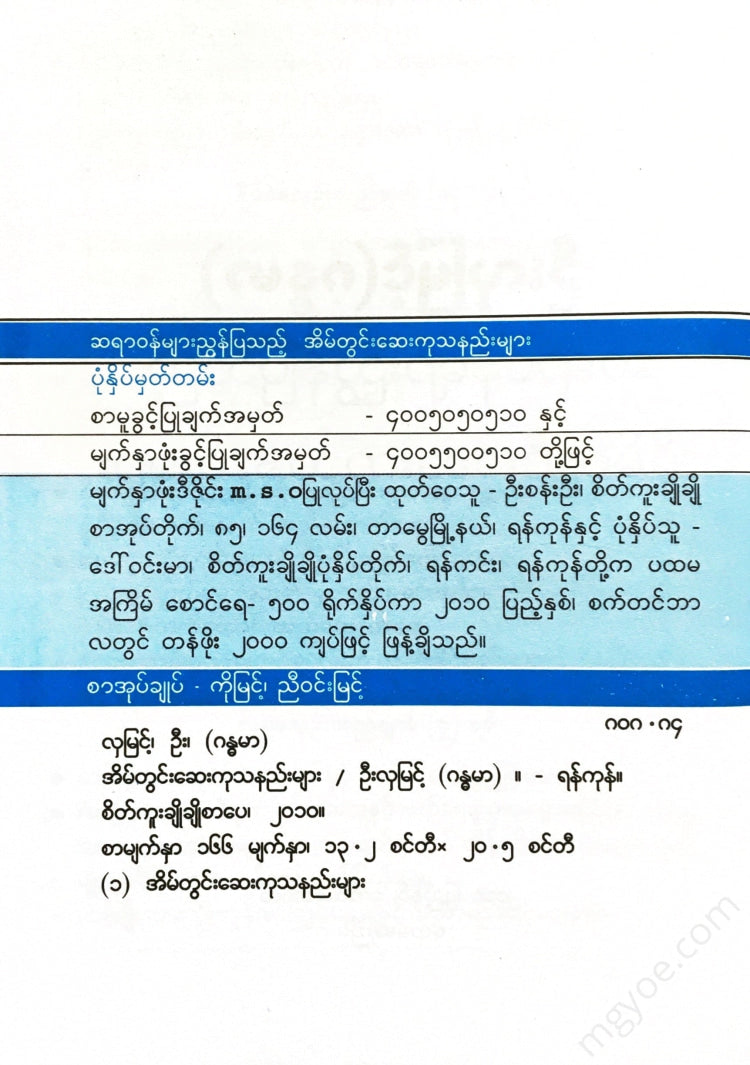စိတ်ကူးချိုချိုစာပေ
U Hla Myint (Gandhama) - Home remedies recommended by doctors
U Hla Myint (Gandhama) - Home remedies recommended by doctors
Couldn't load pickup availability
1. Conjunctivitis
Conjunctivitis is an inflammation of the outermost layer of the eye, the conjunctiva. It is also called pink eye because the conjunctiva turns the entire eye red or pink.
When the conjunctiva becomes red and inflamed, it produces a discharge that contains fluid or pus. This condition is more likely to be uncomfortable than painful. Conjunctivitis can be caused by bacteria or viruses. It can also be caused by physical trauma or exposure to chemicals. If it is caused by bacteria or viruses, it can spread quickly from one eye to the other. The patient usually recovers within one to three weeks. Bacterial conjunctivitis can be treated with antibiotic eye drops.
For patients with conjunctivitis, the following methods can help provide relief and speed up recovery.
Good ways to relieve stress
Apply a bandage to the eye.
You may remember your mother sitting at your bedside, dipping a washcloth in a bowl and gently placing it over your eyes. She was right, except for the wet pillowcase. “ Putting a warm compress on your eyes for five to ten minutes, three to four times a day, can help,” says Dr. Robert Peterson, an ophthalmologist and director of the Children’s Hospital Eye Center in Boston.
Keep your eyes clean.
Many times, conjunctivitis does not go away on its own. To help the healing process, keep your eyes and eyelids clean. Use a cotton ball dipped in water or an antiseptic solution to gently wipe the eyelids. Baby shampoo for adults
Warm water works for babies, but adults sometimes need more than that. Adults with heavy eye discharge should use a solution of one part baby shampoo and ten parts water.
"Dip a sterile cotton ball into the solution and clean your eyelashes. The warm water will soften the hard tissue, while the shampoo will clean the eyelid and eyelashes. An over-the-counter solution can also be used to clean your eyelashes."
Wash off anything that comes into contact with your eyes.
Wash and dispose of any eyewash or other items that come into contact with the eye. Conjunctivitis is very contagious. Do not share towels, washcloths, etc. used by the patient with others. The disease spreads easily.
If you swim
The chlorine in swimming pool water can cause conjunctivitis. Even if there is no chlorine, bacteria can grow in the water. These bacteria can also cause conjunctivitis. So if you are prone to getting sick and are going to swim, wear sunscreen that fits well while in the water.
Pack ice packs.
If your conjunctivitis is caused by pollen, it 's allergic conjunctivitis. If your eyes itch like a mosquito bite and your eyes are watery for a long time, that could be a sign of allergic conjunctivitis, says Dr. J. Daniel Nelson, chief of ophthalmology at the Saint Paul Medical Center in Cincinnati. Over-the-counter antihistamines can help. Use cold instead of heat. Ice really helps with the itching.
Apply before going to bed.
Conjunctivitis caused by a virus is more severe when the eye is closed, which is why the pain is often worse at night while you're sleeping, says Dr. Peterson. So, before going to bed, put a prescription antibiotic in the affected eye.
If this happens, you should definitely see a doctor.
Conjunctivitis is easily treatable and usually goes away on its own within a week. However, if you experience any of the following symptoms, see your doctor.
(5) If the infection gets worse after 5 days, you may experience redness, significant eye pain, stinging, changes in vision, or a yellow or greenish discharge.
Red eyes due to injury
Infections can sometimes enter the eye and scratch the cornea, causing ulcers or even blindness.
If you experience any of the above, do not wait or observe and see a doctor immediately.
